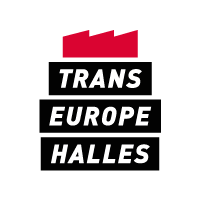Members
Trans Europe Halles currently gathers 100 full members and 62 associate members in more than 40 countries. Trans Europe Halles centers are all established in repurposed buildings: industrial heritage buildings such as former factories, warehouses, but also military, commercial, corporate or religious buildings. Trans Europe Halles centers are mostly multidisciplinary arts centers.
To become a TEH Full Member, applicant cultural centers must fulfill the following membership criteria:
- be a non-governmental organization or private enterprise operating in a repurposed space/building
- be a center/organization with a legal entity structure.
- be at least two years old
- be a community-led independent international grassroots center/organization arising from a citizen's initiative.
- have an autonomous, multidisciplinary social and cultural programming.
- support and advocate for a democratic and pluralistic society.
- show a strong commitment to equity, sustainability, diversity and equal opportunities.
- show a strong motivation and willingness to engage in the network's activities.
- be from any of these eligible 46 countries – https://coe.int
Organizations within and outside Europe who do not fulfill Full membership criterias have the possibility to apply as associate members, if they share Trans Europe Halles values and are interested in the network's activities. Associate members of Trans Europe Halles are typically:
- Non-European grassroots cultural organisations
- National networks
- Cultural businesses, social enterprises and cooperatives
- Government-run institutions (State cultural institutions and agencies, private-public institutions, regions and cities, etc.)
- Sustainable urban development agencies
- NGOs, associations, civil society groups
- Universities and research institutes
- Independent media
- Architecture, Construction or energy specialists
- Heritage specialists
- Hacker spaces
- Advocacy groups
Governance and management
TEH is run in a decentralised way: full members participate in decision-making during the network meetings. Each center with full membership status has one vote regardless of its size or economic status. The Executive Committee, is the governing and policy making body of the network, and is composed of Trans Europe Halles' full members representatives, elected by the General Assembly for two years. Trans Europe Halles' Executive Committee consists of a minimum of five and a maximum of eight people. A member of Trans Europe Halles can serve a maximum of 6 years (3 mandates) in the Executive Committee.
The members of Trans Europe Halles meet twice a year during TEH Meetings. Each meeting is hosted by a Full Member of the network, and co-organised with the Coordination Office.
The Spring Conference is a public event gathering 300 to 400 international grassroots cultural centers managers, urbanists, architects, artists, researchers, policymakers, etc. every year. It is the largest event of its kind, providing networking and peer-learning opportunities, and addressing timely topics for the sector through panels, roundtables, workshops, artistic performances, exhibitions, walks and visits. A formal General Assembly is held during the Spring Conference every year: members are invited to vote on the strategic orientations of the network.
The Fall Camp Meeting is dedicated to Trans Europe Halles members and hubs. It gathers 150 to 300 international grassroots cultural centers managers every year and focuses on strategic thinking, networking, knowledge exchange, project planning and cooperation activities.
The Trans Europe Halles Coordination Office is located in Lund, Sweden. With a broad expertise, and is composed of a team of 15 international multicultural and multi-lingual experts and staff. The Trans Europe Halles Coordination Office offers a platform of services, shared tools and resources for the network. The Coordination Office is responsible for developing connections and networking opportunities, learning and resource sharing, communication and promotion, emergency mobilization and support endorsement for the members of the network. It also supports the sector through advocacy campaigns and participation in networks and expert groups, and policy recommendations. The Coordination Office offers consultancy services, project management, fundraises for the activities of the network and has become a focal point of expertise for the members.
